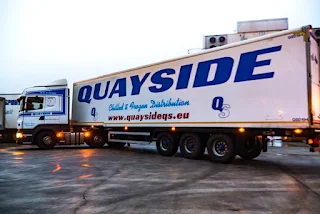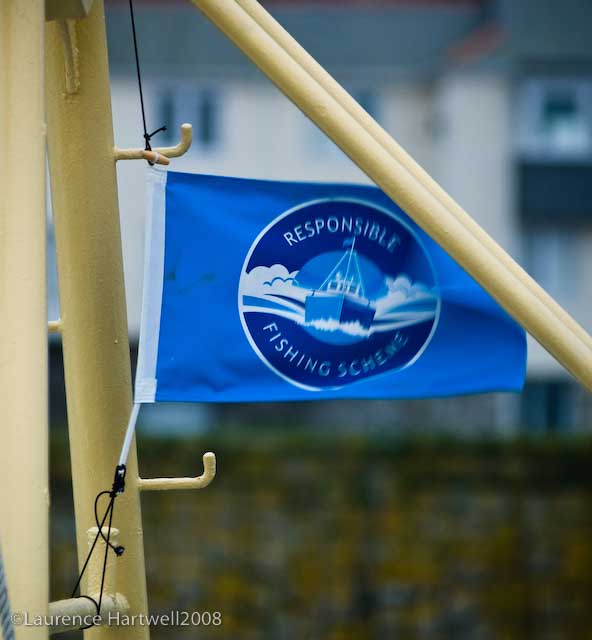From July to September 2019, our fleet researchers will visit over 400 ports to talk to skippers and vessel owners as part of our annual fleet survey.
The Fleet Survey is the major piece of research into the health of the UK's fishing sector, both in terms of the economic performance of the fleet itself but also the social impact it has on coastal communities. The results of the survey help both industry and policy makers to understand the challenges and opportunities the fleet faces as well as the impact of fisheries management measures.
But creating an accurate picture depends on the support and participation from skippers and vessel owners. With the UK's exit from the EU among the changes on the horizon it has arguably never been more important that the fleet survey can show the most complete picture of the catching sector as possible.
How to take part
It should take no more than 15 minutes for skippers and owners to take part in the survey.
Our researchers will ask a series of questions about the financial and operational performance of the fishing vessel, with all answers and any other information provided treated in the strictest confidence.
No figures relating to any individual or specific vessel are revealed in the fleet report or any other outputs.
Benchmarking reports for vessel owners
Owners who take part can request a free financial performance benchmark report. This provides an indication of how well their vessel is performing compared to similar vessels. This can help to inform business and financial decisions.
Industry support
The National Federation of Fishermen’s Organisations (NFFO) have recently asked skippers and owners to take part with Barrie Deas, NFFO chairman, saying:
“I would encourage every skipper and vessel owner to assist Seafish by taking part in the UK fleet survey. By sparing the small amount of time required to take part, you will be helping to create the most accurate picture possible of the UK fishing fleet, across boats of all sizes and the entire country.”
Our researchers
Our fleet researchers are Ross Blakemore, Joe Cooper, Juan Carlos Paredes Esclapez and Oscar Wilkie.
Schedule
The fleet survey schedule can be subject to change, but in the coming weeks our researchers plan to visit ports in the following areas.
Week commencing Monday 19 August
- South West Highlands (Port Appin, Salen, Ardnamurchan, Kilchoan, Glenuig, Arisaig, Mallaig, Fort William)
- Northumberland and Tyne and Wear (Holy Island, Seahouses, Beadnell, Craster, Amble, Blyth, North Shields, South Shields, Sunderland)
- Merseyside and North Wales (Liverpool, Hoylake, Connahs Quay, Bagillt, Mostyn, Rhyl, Penrhyn, Conwy, Bangor, Menai Bridge, Beaumaris, Amlwch, Holyhead, Rhoscolyn, Aberffraw)
- Essex (Clacton, Brightlingsea, Wivenhoe, Colchester, West Mersea, Maldon, Burnham-On-Crouch, Rochford, Southend)
Week commencing Monday 26 August
- Mid West Highlands (Kyle of Lochalsh, Applecross, Shieldaig, Gairloch, Gruinard – Aultbea, Little Loch Broom, Badluarach)
- Moray (Cromarty, Avoch, Burghead, Hopeman, Lossiemouth, Buckie, Findochty, Portknockie)
- North Aberdeenshire (Portsoy, Whitehills, Banff, Macduff, Gardenstown, Rosehearty, Sandhaven and Pitullie, Fraserburgh, Cairnbulg, Inverallochy)
- North Argyll & Bute and Isle of Mull (Luing, Cuan, Balvicar, Oban, Tobermory, Ulva Ferry, Bunessan, Fionnphort, Lochbuie, Coll, Tiree)
- South East Cornwall (Plymouth, Cawsand, Looe, Polperro, Polruan, River Fowey, Mevagissey, Gorran Haven, Portloe, Portscatho and St Mawes)
- Orkney (Kirkwall, Deerness, Burray, South Ronaldsay, Stromness, Birsay, Tingwall, Eday, Westray, Sanday, Stronsay, Hoy)
- Outer Hebrides (Stornoway, North Lochs, North Harris, Scalpay, South Harris, Stockinish, Leverburgh, Bernera (Lewis), Lochmaddy, North Uist, Kallin, Benbecula, Loch Carnan, Lochboisdale, South Uist and Eriskay, Barra, Northbay, Castlebay, Bernera (N Uist), Carloway, Back, Portnaguran and Ness)
- Isle of Skye (Broadford, Portree, Uig, Snizort, Dunvegan, Bracadale, Portnalong, Carbost, Sleat)
- South West Cornwall (Mylor, Penryn, River Fal – Falmouth, Helford River, Porthoustock, Coverack, Cadgwith, Mullion, Porthleven, Portreath, Hayle, St Ives, Penzance, Newlyn, Sennen, Penberth)











































